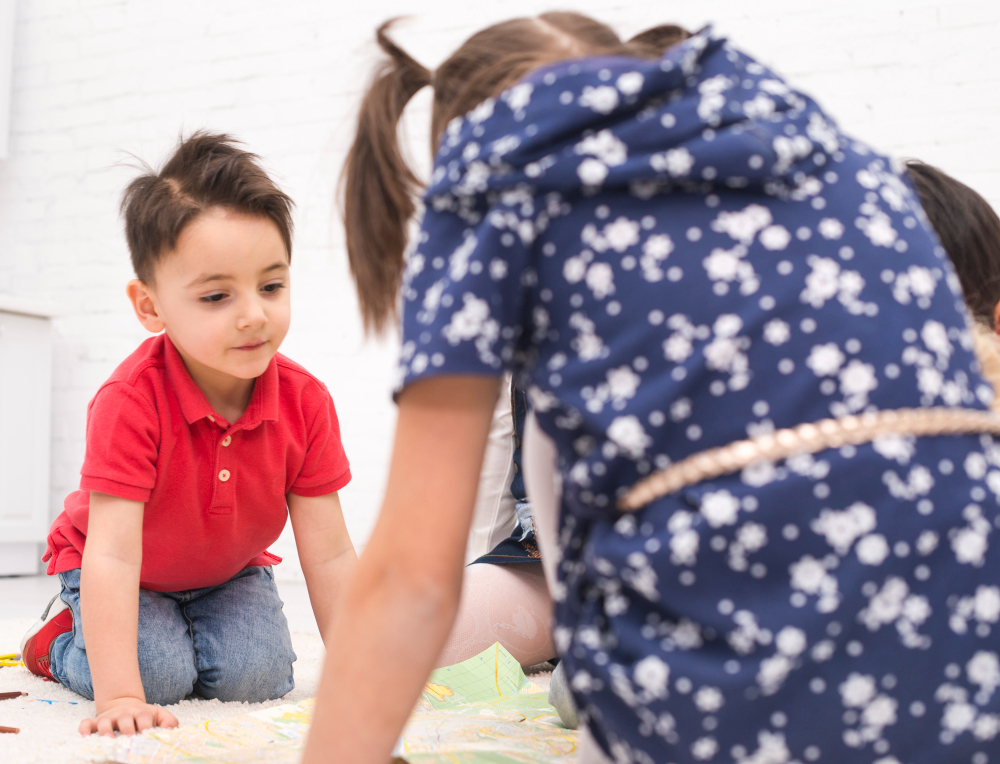Table of Contents
ToggleAccording to studies, there are several advantages for instructors and students when class sizes are reduced. Fewer students per class allow teachers to modify their lesson plans to accommodate each student’s talents, requirements, and interests. Students receive more excellent one-on-one time and individualised learning opportunities. Parents must consider various variables when choosing the best International School, including class size, curriculum, location, tuition cost, and amenities.
This blog discusses the importance of preschool class size and how it affects your children’s growth.
Education and Class Size Relationships
According to research, high-quality early childhood programs are associated with long-term learning or developmental benefits.
But what does a large class size have to do with an excellent early education? The more possibilities for each kid to get specialised attention, the smaller the class size. Thanks to this, your youngster may get new skills, mature, and develop in ways they may not otherwise acquire. Although it is not the sole consideration, class size is a crucial component of any high-quality pre-K program.
A smaller class size not only increases the possibility of receiving individualised attention but also enables each instructor to get to know their students better. It promotes student-teacher interaction and helps to create a welcoming, encouraging, and friendly learning atmosphere.
Teacher-to-Student Ratio
Teacher-to-student ratios are the basis for good educational practices and sufficient monitoring. In a new environment directly after their homes, toddlers might feel secure and open up with an excellent teacher-to-child ratio. Some of Dubai’s well-known schools have extraordinarily qualified and educated personnel. They have the tools necessary to bring out the best in every child. Teachers can encourage students’ creative and exploratory skills when class sizes are reasonable.
Nourishing educational setting
Every student in a small class is given individual attention, allowing the teacher to overcome any learning impediments as soon as they are identified. Additionally, teachers can get to know each student and learn about their strengths, limitations, and preferred learning methods. It aids schools in developing a stimulating atmosphere where individualised instruction enables pupils to perform at their highest level.
Collaborative atmosphere
In a big class, students frequently remain with their familiar peers. However, in a small class, everyone may get to know one another exceptionally well. Students are more inclined to interact and help one another when they feel at ease with their peers and professors. It makes it easier for the preschoolers to grow into learned individuals and helps in their more effortless transformation to an Indian high school admission in Dubai and, therefore, an even more remarkable career aspect.
Increased Participation
In a setting where children feel safe expressing themselves without worrying about being judged, they are more likely to develop into confident learners. Small class sizes enable children to develop at their rate while being guided by teachers, expressing their ideas and interacting with their classmates in a joyful, quiet, secure, and stimulating atmosphere.
Children may ask for additional help without feeling awkward, unlike in a more extensive classroom where they could end up slipping behind or hiding behind others who are more outspoken and self-assured.
Students can discuss their opinions and thoughts.
Students feel more comfortable raising their hands in small classes. They are more willing to share their ideas with style and ask questions. Students learn to value other viewpoints while also enjoying their culture and individuality.
Classes Evolve into Communities
A smaller class size allows students to get to know their classmates better and helps them feel more at ease and confident while discussing their thoughts and points of view. These relationships develop into enduring friendships. Students attending an international school will appreciate and get along with peers from other nations and cultures, a crucial ability in the globalised 21st century.








